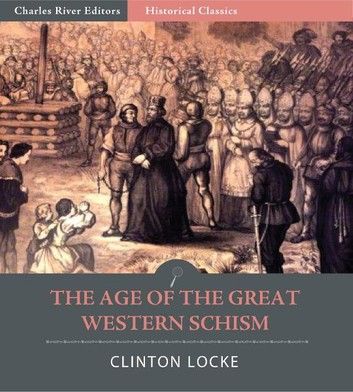
In November 2018, James Grein spoke at the Church Militant rally in Baltimore, outside the annual meeting of American Catholic bishops.
James’ courage moved me and inspired me. Theodore McCarrick had done everything possible to destroy James’ life. But James stood up and fought back.
Earlier that year, the Catholic world had learned: McCarrick systematically abused seminarians and young priests under his authority. He did this over multiple decades. Scores of Church officials knew about it.
The big problem was: We Catholics are supposed to appeal to our bishop for justice, when someone violates our sacred rights. But who do you go to, when it’s the bishop himself violating those rights? Archbishop McCarrick’s victims had no one to whom they could appeal. (Except the Vatican, of course, which ignored them.)

So the hue and cry in the fall of 2018 centered around this concept: We need an authoritative body, made up mostly of lay people–an independent commission–to which Catholics can turn for justice, when the malefactor is the local bishop.
That fall, the winner of the Canon Law Association’s annual award gave a speech endorsing this idea. Our local bishop here supported the idea, in a pastoral letter.
The establishment of just such an independent commission–to investigate the wrongdoing of bishops–sat squarely on the agenda for the Baltimore meeting that fall. Many, if not most, of the bishops arrived at the Inner Harbor expecting to vote in favor of establishing the independent commission.
That is, until the item wasn’t on the agenda anymore. James Grein gave the world a glimpse of soaring courage in the November cold. Meanwhile, inside the adjacent hotel, the American bishops gasped when the then-president of the conference announced that the Vatican had insisted they not vote to establish the independent commission.

The rationale: A few months later, the pope would host bishops-conference presidents from all over the world in Rome, to discuss the sex-abuse scandal. So the American bishops should hold off, until after that meeting.
They did. No independent commission to investigate bad bishops got established. The Vatican meeting occurred the following February. That meeting gave rise to a document published by the pope the following May, providing some temporary rules for how to deal with sex-abuse. Those temporary rules themselves gave rise to some revisions to the Code of Canon Law, set to go into effect in a week.
Things came full circle earlier this month, at the 2021 US bishops’ meeting in Baltimore. A Vatican official explained the revision of Canon Law to the American bishops. Cases of abuse involving seminarians, and other vulnerable Catholics preyed upon by Church officials, are to be handled by…
The local bishop.
Quite a way to conclude the process of “addressing” the McCarrick crisis.
Fall 2018: American Catholics urge the bishops to establish an independent commission, which would stand ready to deal with the next McCarrick.
Fall 2021: A Vatican official explains to the American bishops that the person who will handle the next McCarrick will be the next McCarrick himself.
Problem (resoundingly not) solved.



 Theodore McCarrick made us–my classmates, myself, all the couple hundred men he ordained–he made us ministers of the Body and Blood of God Incarnate. Can I have a relationship with God without the Church and the Holy Mass? Me, Mark White, Father Mark White–can I? No, I don’t believe so.
Theodore McCarrick made us–my classmates, myself, all the couple hundred men he ordained–he made us ministers of the Body and Blood of God Incarnate. Can I have a relationship with God without the Church and the Holy Mass? Me, Mark White, Father Mark White–can I? No, I don’t believe so.